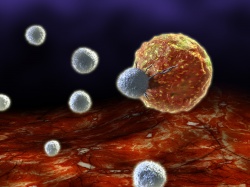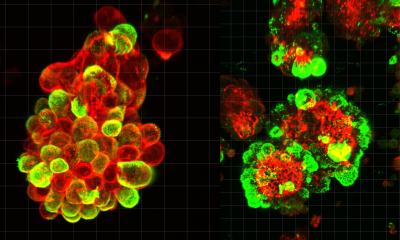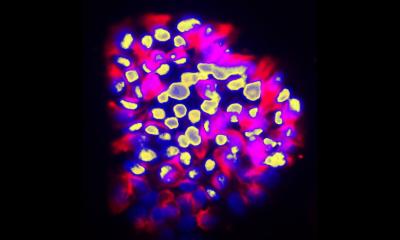“JEDI” Technology
New understanding of how immune system works
When it comes to fending off disease and helping prevent people from falling ill, the body’s immune system – armed with T-cells that help eliminate cancer cells, virus-infected cells and more – is second to none. But exactly how the immune system works remains, in many ways, a mystery, as there are numerous cell types whose functions and interactions with our immune systems have not been well understood.

Now, a team of scientists at the Icahn School of Medicine at Mount Sinai have developed the Just EGFP Death-Inducing T-cell, or JEDI T-cells, which enable the visualization of T-cell antigens, allowing researchers to study T-cell interactions with different cell types, model disease states, and finally determine the functions of otherwise poorly characterized cell populations. The article was first published online in Nature Biotechnology.
“JEDI T-cells provide an unprecedented technology to study, model and visualize immune responses and immunotherapies in ways that were never before possible, and this has the potential to revolutionize immunology research,” said Brian D. Brown, BSc, PhD, Associate Professor of Genetics and Genomics Sciences at the Icahn School of Medicine at Mount Sinai, and senior author of the paper. “Immunotherapy is considered one of the most important breakthroughs in cancer care in decades, but there is more research needed to improve its success in the clinic. The JEDI technology will be integral to this effort, as well as helping to advance other area of drug development.”
Enhanced green fluorescent protein, or EGFP, was first discovered in jellyfish and is what gives these sea creatures their bright luminescence. In 1994, scientists first realized that putting the EGFP gene into cells made them glow green, making it possible to easily visualize them: ever since, scientists have generated thousands of living systems with EGFP, including EGFP-expressing viruses and EGFP-expressing cancer cells.
The JEDI T-cells developed by Dr. Brown and his team at Mount Sinai enable researchers to study T-cells, the assassins of the immune system, as they interact with and kill any cell in the body, including pathogen-infected cells and even tumor cells. This is important because it makes it possible to model almost any autoimmune disease, evaluate new drug therapies, and even identify novel targets in the emerging area of cancer immunotherapies.
Using the JEDI technology, Mount Sinai researchers uncovered evidence that immune cells can find cells in the brain expressing their target antigen, even in non-infected states, which provides evidence of an immune surveillance pathway within the body’s central nervous system. This discovery has relevant implications for understanding neuroinflammation and even brain malignancies such as glioblastoma.
“In a galaxy far, far away, the Jedi knights defeated the dark side,” said Judith Agudo, PhD, Postdoctoral Fellow at the Icahn School of Medicine at Mount Sinai and first author of the study. “We believe the JEDI T-cells will help us win the fight against cancer, autoimmunity, and infectious disease.”
The article, titled “GFP-specific CD8 T cells enable targeted cell depletion and visualization of T-cell interactions,” first appeared online in Nature Biotechnology. Authors are Judith Agudo, Albert Ruzo, Eun Sook Park, Robert Sweeney, Veronika Kana, Meng Wu, Yong Zhao, Dieter Egli, Miriam Merad and Brian D. Brown.
Source: Mount Sinai Health System
09.11.2015





